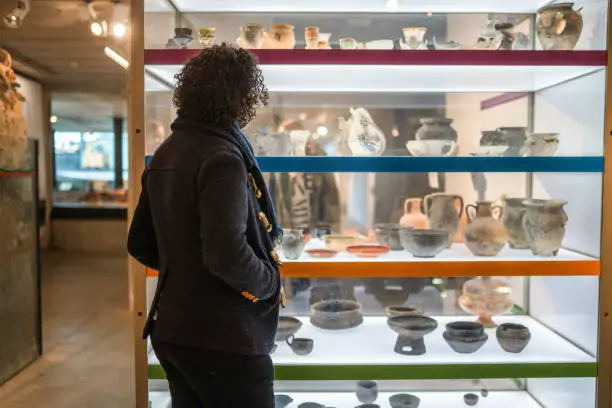2. The Scope of Gaming Grants
The scope of gaming grants is impressively broad, encompassing various aspects of the gaming industry. Some grants focus on specific genres, like educational games or games that promote social good. Others may target technological innovations in gaming, such as the development of new gaming engines or artificial intelligence applications in gaming.
Diversity and inclusion have also become key areas of focus. Grants are increasingly aimed at supporting underrepresented groups in the gaming industry, ensuring that diverse voices and perspectives are heard and that the gaming community becomes more inclusive.
Moreover, gaming grants aren’t limited to game development alone. They also support gaming events, tournaments, and conferences that play a vital role in community building and knowledge sharing within the industry.
3. The Impact of Gaming Grants
The impact of gaming grants is profound and far-reaching. For developers, these grants can mean the difference between a project’s success and abandonment. They provide not just financial assistance, but also validation and recognition, boosting morale and encouraging further innovation.
In the broader sense, gaming grants contribute significantly to the economic vitality of the gaming industry. They help sustain a vibrant and dynamic market, filled with diverse and high-quality games. This, in turn, enriches the cultural landscape, as games are increasingly recognized as a form of art and storytelling.
Eligibility Criteria: Who Can Apply for Gaming Grants?
Navigating the landscape of gaming grants can be as intricate as game development itself. Understanding who is eligible to apply is crucial. This comprehensive guide delves into the various eligibility criteria set by grant providers, helping potential applicants determine if they can tap into these valuable resources.
1. Types of Applicants
Gaming grants are not one-size-fits-all; they cater to a diverse array of applicants. This includes:
- Independent Game Developers: Often the heart and soul of innovation, indie developers are typically the primary recipients of gaming grants. Whether solo developers or small teams, these individuals are the driving force behind fresh, creative gaming concepts.
- Gaming Startups: New companies in the gaming sector can apply for grants to propel their initial growth, develop prototypes, or market their games.
- Educational Institutions: Universities and colleges with programs in game design, development, or related fields often qualify for grants aimed at fostering educational initiatives or research projects.
- Non-Profit Organizations: NGOs focused on using gaming for social good, education, or community development may be eligible for specific grant programs.
2. Project-Based Eligibility
Many grants are project-specific, meaning the nature of your gaming project can determine your eligibility:
- Innovative Game Development: Projects that demonstrate innovative gameplay, storytelling, or use of technology may be favored in the grant application process.
- Educational or Social Impact Games: Games designed with educational objectives or to address social issues can qualify for certain grants aimed at positive societal impact.
- Diversity and Inclusion Projects: Initiatives that promote diversity in gaming, both in game content and in the development team, are increasingly being recognized and supported.
3. Financial and Organizational Requirements
Grants often come with specific financial or organizational criteria:
- Financial Need: Some grants are designed to support projects that might not otherwise have sufficient funding.
- Organizational Structure: The legal structure of your organization (non-profit, for-profit, LLC, etc.) can affect eligibility. Some grants are exclusive to certain types of organizations.
4. Geographic Location
The applicant’s location can be a determining factor, as some grants are region-specific, supporting local developers or projects that benefit a particular community or region.
5. Compliance and Previous Achievements
- Compliance with Industry Standards: Adherence to industry norms and regulations can be a prerequisite.
- Track Record: A history of successful projects or a demonstrable skill set in game development can be beneficial.
6. Application Readiness
Being grant-ready involves having a well-prepared proposal, a clear budget plan, and, if required, a prototype or demo of your game.
List of Foundations that Award Gaming Grants
Application Process: Steps to Success in Securing Gaming Grants
Securing a gaming grant is a strategic process that requires careful planning and attention to detail. This guide outlines the key steps involved in the application process, designed to maximize your chances of success.
1. Research and Identify Relevant Grants
Start by identifying potential grants. Focus on those that align with your project’s goals and your organization’s profile. Utilize online databases, gaming industry forums, and professional networks to find grants that suit your needs. Pay attention to the details of each grant, such as their funding objectives, eligibility criteria, and application deadlines.
2. Understand the Requirements
Once you have identified potential grants, thoroughly read their guidelines. Understanding the grant’s objectives, the kind of projects they support, and the specific requirements is crucial. This step ensures that your project aligns with the grant’s goals and that you meet all eligibility criteria.
3. Prepare a Compelling Application
Your application should clearly communicate your project’s value and its alignment with the grant’s objectives. Key components often include:
- Project Proposal: Outline your game’s concept, objectives, target audience, and unique selling points. Explain how your project stands out in the gaming industry.
- Budget Plan: Provide a detailed budget that outlines how you will use the grant funds. Be realistic and transparent about your financial needs.
- Timeline: Include a clear timeline for your project, demonstrating your ability to manage and complete the project within a reasonable timeframe.
- Team Profile: Showcase the experience and skills of your team. Highlight any previous successes in game development or related fields.
4. Gather Supporting Documents
Most grants require additional documents, such as business plans, financial statements, or proof of legal status. Ensure you have all the necessary documents ready and that they are up-to-date and accurate.
5. Create a Prototype or Demo (if applicable)
For game development grants, having a prototype or demo can significantly strengthen your application. It demonstrates your commitment and gives the grant committee a tangible sense of your project.
6. Review and Revise Your Application
Before submitting, thoroughly review your application. Check for clarity, coherence, and adherence to the grant guidelines. If possible, have a third party review your application to catch any errors or areas for improvement.
7. Submit Before the Deadline
Ensure you submit your application well before the deadline to avoid any last-minute issues. Late submissions are typically not considered and can reflect poorly on your organizational skills.
8. Follow Up
After submitting your application, follow up with the granting organization if necessary. This shows your engagement and interest in the grant.
Maximizing Your Chances: Tips and Best Practices for Gaming Grant Applications
Securing a gaming grant is a competitive process, requiring not just a great idea but also a strategic approach to the application. Here are essential tips and best practices to enhance your chances of success in the gaming grant landscape.
1. Tailor Your Application
Understanding the specific focus and requirements of each grant is crucial. Tailor your application to align closely with the grant’s objectives. Highlight aspects of your project that resonate with the grant’s goals, whether it’s innovation, educational value, social impact, or technological advancement.
2. Showcase Your Unique Selling Point
What sets your game or project apart? Clearly articulate your unique selling point (USP). Whether it’s a novel game mechanic, an underserved audience, a cutting-edge technology, or a compelling narrative, make sure your USP shines through in your application.
3. Demonstrate Market Understanding
Show that you understand the gaming market and where your project fits within it. Include market research, target audience analysis, and competitive analysis to demonstrate that your project has potential for success and impact.
4. Build a Strong Team
The strength of your team can be a decisive factor. Highlight the skills, experience, and achievements of your team members. If you have industry veterans, successful projects, or specialized expertise on your team, make sure this is clearly presented in your application.
5. Develop a Clear, Detailed Proposal
Your project proposal should be comprehensive and clear. Outline your concept, development process, timeline, and budget in detail. A well-structured, logical, and detailed proposal can significantly increase your credibility and appeal to grant committees.
6. Be Realistic and Transparent with Your Budget
Provide a detailed budget that is realistic and justifiable. Transparency in how you plan to use the funds not only builds trust but also shows your competence in managing resources efficiently.
7. Include a Prototype or Demo
If possible, include a prototype or demo of your game. This demonstrates your commitment and ability to deliver and gives the grant committee a tangible sense of your project’s potential.
8. Proofread and Review Your Application
Ensure your application is free from errors and is as clear and concise as possible. Have someone else review it to catch mistakes and provide feedback. A well-written, error-free application reflects your professionalism and attention to detail.
9. Adhere to Guidelines and Deadlines
Strictly follow the application guidelines and submit your application well before the deadline. This shows your respect for the process and your organizational skills.
10. Seek Feedback on Rejected Applications
If your application is not successful, seek feedback. Understanding why your application was rejected can provide valuable insights for future applications.
“Conclusion: Navigating the Path to Successful Gaming Grant Applications”
The journey to securing a gaming grant is a meticulous and strategic endeavor, crucial for those looking to innovate and excel in the dynamic world of gaming. This comprehensive guide has navigated you through understanding gaming grants, eligibility criteria, application processes, and maximizing your chances of success. Here, we conclude with key takeaways and a final perspective on the impact and significance of gaming grants in the industry.
1. Emphasize Alignment with Grant Objectives
The overarching theme in successful grant applications is alignment. Your project must resonate with the grant’s purpose and goals. Whether it’s innovation in game design, technological advancements, educational initiatives, or promoting diversity and inclusion in gaming, your application should reflect a clear understanding and alignment with these objectives.
2. Craft a Compelling Narrative
Storytelling isn’t just a component of game design; it’s an essential part of your grant application. A compelling narrative that weaves together your project’s vision, uniqueness, and potential impact can captivate grant reviewers. This narrative should be consistent across your application, from the project proposal to the budget plan.
3. Leverage the Power of a Strong Team
The strength and expertise of your team are pivotal. Highlighting the skills, experience, and past successes of your team members can significantly boost your application’s credibility. Remember, a diverse and skilled team is often viewed as a robust foundation for successful project execution.
4. Attention to Detail in Application Preparation
Precision and attention to detail in preparing your application cannot be overstated. From adhering to guidelines to ensuring a clear, error-free, and well-structured proposal, these aspects reflect your professionalism and dedication. It’s often the finer details that set apart successful applications.
5. The Importance of Market Understanding and Realism
Demonstrating a deep understanding of the gaming market and being realistic in your proposals are key factors. This includes a well-researched market analysis, a realistic budget, and a feasible project timeline. Grant committees favor applications that exhibit both ambition and practicality.
6. Persistence and Learning from Feedback
Persistence is vital in the world of gaming grants. Not every application will be successful, but each attempt provides valuable learning opportunities. Seek feedback on rejected applications and use these insights to refine future proposals.
7. The Broader Impact of Gaming Grants
Gaming grants play a crucial role in fostering innovation, diversity, and growth in the gaming industry. They not only provide financial support but also act as catalysts for new ideas, technologies, and talents to emerge and flourish. By enabling a wide range of projects and initiatives, gaming grants contribute significantly to the vibrancy and evolution of the gaming landscape.
Essential Reads for Grant Writing Excellence
Grants can unlock vast potentials, but securing them? That’s an art and a science. Whether you’re new to the field or looking to enhance your skills, these hand-picked titles will elevate your grant-writing game:
Go Beyond Basics: Dive into strategies and techniques that make proposals irresistible. With insights into a reviewer’s mindset, stand out and shine even in fierce competition.
Be Grant-Ready: Ensure your organization isn’t just applying but is truly ready to manage and utilize grants. Streamline, assess, and position yourself for success from the get-go.
From Novice to Pro: Covering the entire spectrum of grant writing, this guide offers invaluable tips, examples, etc.. It’s your blueprint to mastering the craft.
4. The Small Business Guide to Winning Grants:
Business-Specific Brilliance: Designed for small businesses, navigate the unique challenges you face. Find, apply, and win grants tailored just for you.
Think, Act, Succeed: More than writing – it’s about strategy and mindset. Step into the shoes of a guru, understand funder desires, and become indispensable in the grant world.
Why These Titles?
Securing grants isn’t just about paperwork; it’s about alignment, narrative, and persuasion. The above titles are your arsenal in this endeavor, carefully crafted to offer actionable insights for every level of expertise.
In a realm where competition is stiff, your edge lies in continuous learning and adaptation.
Grab these books, absorb their wisdom, and position yourself as the top contender in the grant game. Your journey to becoming a grant virtuoso begins with these pages. Dive in!
Unlock Your Grant Success!
Join our email list now for exclusive grant-writing tips and unique grant opportunities delivered straight to your inbox. Click here to Subscribe. Don’t miss out!



